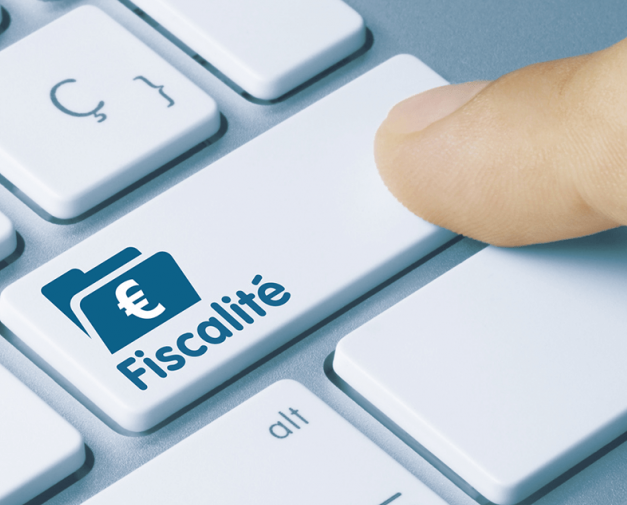In just a few years, Bitcoin has become an essential asset, adopted by millions of individual investors and an increasing number of institutions. But beyond the promise of returns, Bitcoin taxation remains a must. In France, tax rules have tightened in recent years and now apply to all holders of crypto assets. In this 2025 guide, we explain everything: taxation, capital gains calculation, mining, staking, DeFi, donations, and reporting requirements.
What is Bitcoin taxation?
Bitcoin taxation covers all the tax rules governing the purchase, holding, exchange, and resale of Bitcoin. Since 2019, capital gains realised by individuals have been subject to a specific regime provided for in the French General Tax Code. France has taken a strict approach, considering Bitcoin a digital asset and not an official currency. This means that every transfer transaction is likely to trigger a tax.
Personal Taxation: Applicable thresholds and rates
Individuals who buy and resell Bitcoin are subject to the capital gains tax regime on the sale of digital assets. You are exempt if the total annual sales do not exceed 305€. Beyond that, all your capital gains are taxable, whether you are an occasional or regular investor. Two tax options are available: the flat tax (PFU) at 30% (12.8% income tax + 17.2% social security contributions) or the progressive tax scale, which is advantageous if your income is low or if you are not liable for tax.
Example: You buy 1 BTC for 20,000€ and resell it for 30,000€. You realise a capital gain of 10,000€, which will be taxed at 30%, or 3,000€, if you choose the flat tax
Bitcoin taxation: investor or professional?
The distinction between individual and professional investors is essential. The tax authorities apply the “bundle of indices” method to determine the investor’s status: number and frequency of transactions, the extent of the technical resources used, and the investor’s skills and training. If you are considered a professional, your income is subject to BNC (non-commercial profits), or even BIC (industrial and commercial profits) for buying and selling activities. This regime results in higher taxation and social security contributions.
Calculating capital gains on Bitcoin
The calculation of capital gains is not simply based on the difference between the purchase price and the sale price. Bitcoin taxation is based on a proportional formula applied to the overall portfolio.
Formula: Capital gain = Sale price – [Total purchase price x (Sale price/Total portfolio value)]
This calculation method can quickly become complex for active investors. The government requires the use of the Cerfa 2086 form to declare each sale. Automated tools exist to simplify this task, such as Waltio or Coqonut.
Taxation of Bitcoins and mining
Bitcoin mining is a unique activity because it is not a simple investment but rather a digital currency creation. For tax purposes, income from mining is taxed as non-profitable income. Bitcoins created are declared at their market value upon acquisition. The income is taxable according to the progressive income tax scale.
Example: If you mine 0.1 BTC and it is worth 4,000€ when you receive it, you must declare 4,000€ of income in non-commercial profits.
Staking and Decentralised Finance (DeFi)
Staking, which involves locking one’s crypto assets to generate passive income, is also subject to taxation. Crypto assets obtained through staking must be declared as non-recurring assets at their market value. Upon future resale, this value becomes the purchase price.
DeFi (decentralised finance) is still partly in a grey area, but several cases are now regulated: lending (crypto loans), the interest of which is considered debt income taxed at the 30% PFU rate; yield farming and liquidity mining, which are generally treated as non-recurring assets; and airdrops or NFTs, which are often also taxed.
Taxation of Bitcoin gifts and inheritance
Bitcoin gifts follow the tax regime for traditional donations. A parent can give up to 100,000€ to their child tax-free every 15 years. In the absence of family ties, gift tax can reach 60%. In the event of a subsequent resale, the value used to calculate capital gains is that of the day of the donation.
Bitcoin reporting obligations
In addition to reporting capital gains, the tax authorities require you to declare all digital asset accounts opened abroad. If you use a platform like Binance, Kraken, or KuCoin, you must complete Form 3916-BIS. Failure to do so results in a fine of 750€ to 1,500€ per undeclared account. The tax authorities are increasingly cross-referencing their data with that of exchange platforms, making fraud nearly impossible.
How to optimise Bitcoin taxation?
France does not provide specific tax loopholes for cryptocurrencies, but several legal strategies can reduce the tax bill. Using stablecoins (USDT, USDC) allows you to avoid immediate taxation in euros. Taking advantage of tax deductions on family gifts offers tax optimisation. Opting for the progressive tax scale may be more advantageous if your income is modest. Finally, planning your transfers to limit the number of taxable transactions is a simple and effective method.
Bitcoin taxation in Europe: significant disparities
France stands out for its strict taxation, but other countries are more flexible. Germany exempts capital gains if cryptocurrencies are held for more than a year. Portugal, long considered a tax haven, tightened its tax system in 2023. Switzerland, meanwhile, is known as Europe’s “Crypto Valley” with a favourable tax framework. These differences create tax competition between states, with some investors choosing to move abroad to reduce their tax burden.
Towards harmonisation with MiCA?
The MiCA (Markets in Crypto-Assets) Regulation, published in 2023 and applicable by the end of 2024, regulates crypto-asset services in the European Union. However, it does not provide for tax harmonisation. Each country retains its autonomy in terms of taxation. Bitcoin taxation will therefore remain variable from one state to another.
FAQ – Bitcoin taxation
1. Do I have to declare my Bitcoins if I hold them? No, as long as they are sold in euros or in goods/services.
2. Are BTC-to-ETH exchanges taxable? No, only withdrawals in fiat currency are.
3. What is the exemption threshold? 305€ per year.
4. Which form should I use to declare my capital gains? Cerfa 2086.
5. What about my foreign accounts? Form 3916-BIS.
6. How is mining income taxed? In BNC, according to the progressive scale.
7. Is staking taxed? Yes, like BNC.
8. Can I choose between the flat tax and the progressive scale? Yes, since 2023.
9. What are the risks if I forget to declare? A fine of 750€ to 1,500€ per undeclared account.
10. Will Bitcoin taxation be harmonised across Europe? No, MiCA regulates services but not taxes.










